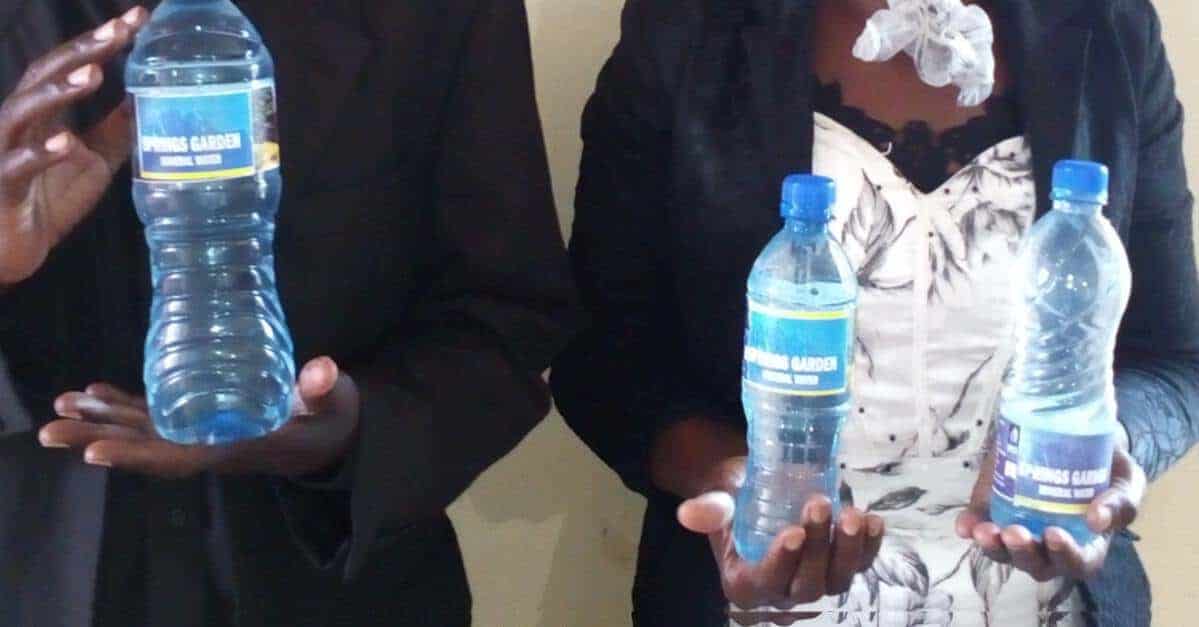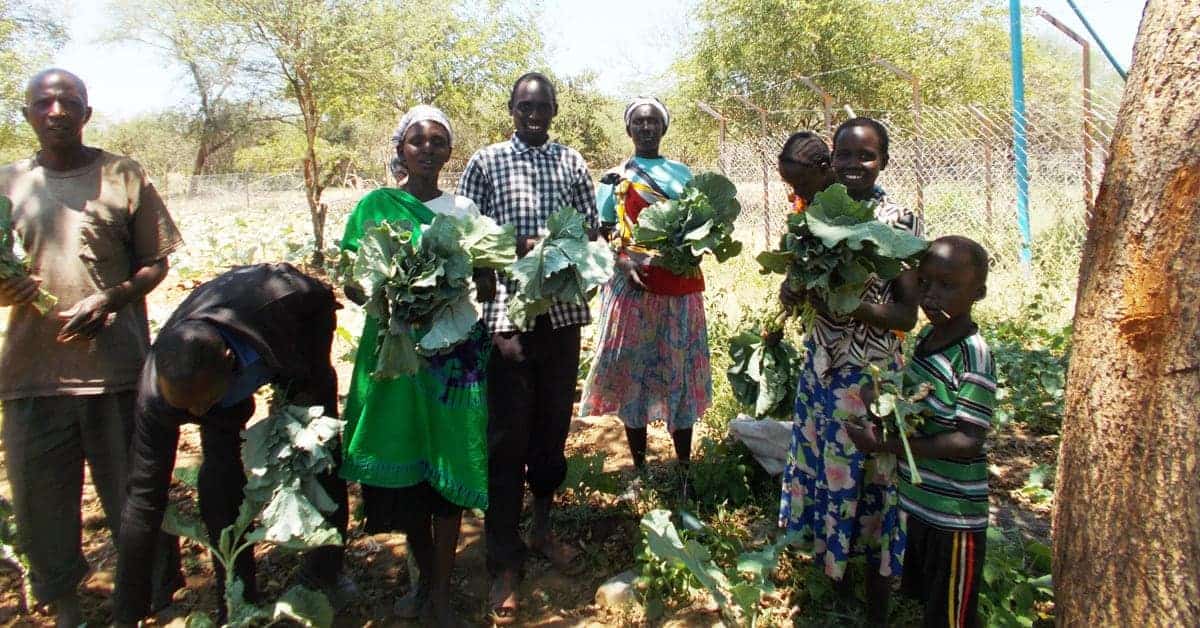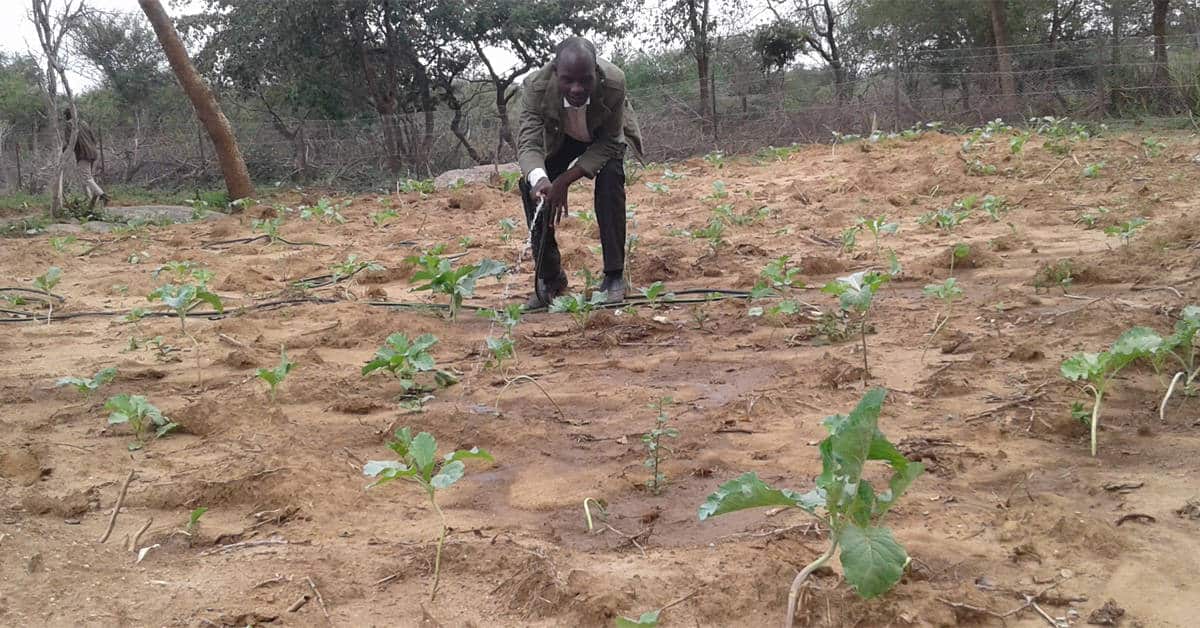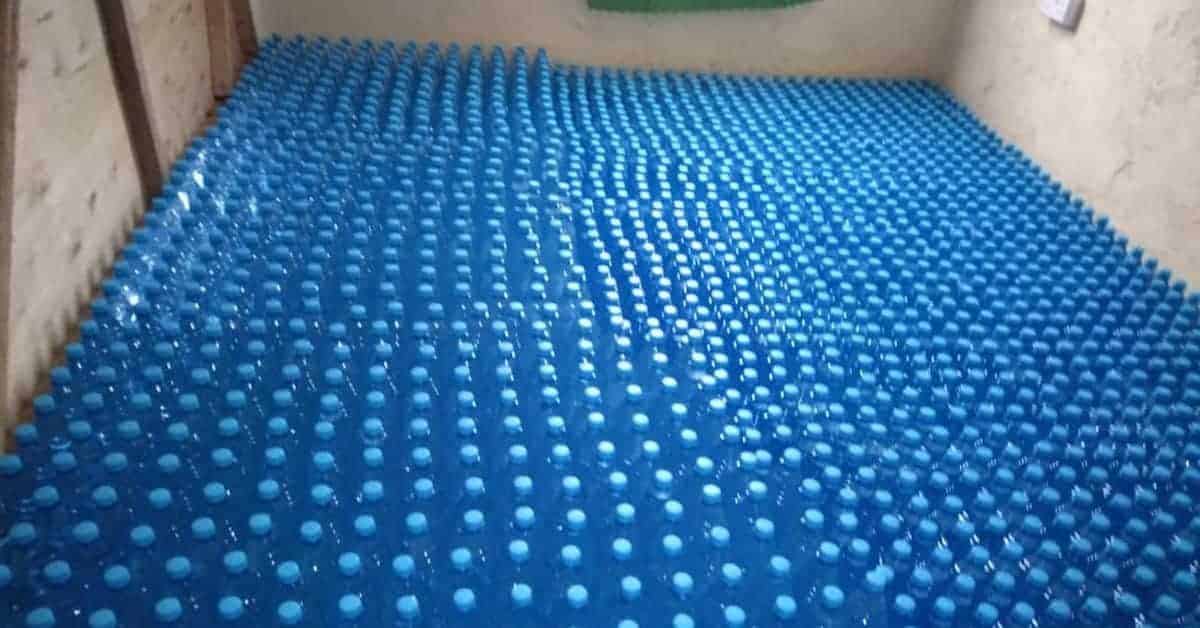If you are following our continuing saga of helping people in a specific region of Kenya, you know that we had to drill a new well a few months ago or see a school closed down that was helping orphans and children living with drug-addicted parents in a place called Forkland. A flood last December polluted their former well with their sewage and was no longer usable. This school has been run by a woman after the tribal violence as the only hope to break the poverty and bondage of children in this area and make a generational shift in a place of great need.
The new well went 340 feet deep and hit an aquifer of pure mineral water that is under intense pressure. Not only is it enough water for the school and the surrounding community who also use that water, but health officials also recommended bottling it for sale since the water is of the highest quality anywhere in Kenya. This is an answer to prayer in so many ways. For every need we’ve sought to help in Kenya, we have also started an enterprise they can utilize, not only to hire people who need jobs but also to fund ongoing needs. The orphanage/school we started is supported by a petrol station we built. Other needs in the Kitale area are being funded by a grain distribution company we launched there. This bottling plant will help provide for Forkland school as well as outreaches into that community. The overflow will also be helpful in future needs in North Pokot.
July 2020 will complete our five-year project to make the tribes of North Pokot that we’ve been serving, sustainable without outside help. We have drilled wells, started irrigation projects, opened schools, helped with health care, and funded microloans to help create new businesses. By all indications, they should be able to use their creativity and industry to care for themselves beyond that.
This bottling plant is the next step in securing an income stream for Forkland School, help with the impoverishment of the surrounding community, and the overflow will be able to help new people groups in Pokot. But for that, we need an additional $42,000 to start the enterprise. This includes empty bottles to get the enterprise going, as well as training for five months and a conduit for distribution. If you can help us fund this project in whole or in part, I would be incredibly grateful.
Also, this month, we need an additional $18,000 to feed a new tribe that came two months ago to try to find some resource. Their women and children were dying, and no other aid was available to them. They sought help from the tribes we are assisting in North Pokot. We gave them food two months ago, and they need two months more to get them to harvest time. So, in addition to the $10,000 we send every month, we need an additional $60,000 this month.
Your help is appreciated more than you know. All contributions are tax-deductible in the US. And, as always, every dollar you send goes to the need in Kenya. We do not (nor do they) take out any administrative or money transfer fees. Please see our Donation Page at Lifestream. You can either donate with a credit card there, or you can mail a check to Lifestream Ministries • 1560 Newbury Rd Ste 1 • Newbury Park, CA 91320. Or if you prefer, we can take your donation over the phone at (805) 498-7774.









Is there anyway their bottling plant could produce bottles from plant material making them
Biodegradable. Such water bottles are now available in the states. One brand is JUST WATER. Paper based bottle and plant based cap. Ive reused it at least 6 times and still strong. I believe you are aware a of the worldwide plastic problem. I don’t know how much more (or maybe not), this technology would cost. I hope someone is looking in to it. In Ethiopia plastic bottles were strewn everywhere. I doubt if any recycling will be going on in Pokot or vicinity.
Thank you for ALL you have and are doing. And thank you for considering this issue. Many projects have been done with the best of intentions that have had unthought of consequences in the name of charity.
Sincerely,
Nancy Buck
Hi Nancy. I’ll have them check on it, but I truly doubt this is an option in this region of Kenya.